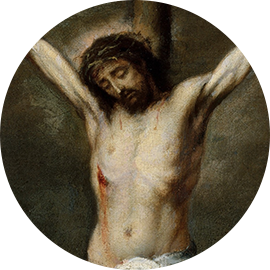The “How is Your Christian Life?” Quiz
A challenge for each one of us
Good Friday
From a letter to the Hebrews 9:11-28
When Christ came as high priest of the good things which have come to be, he entered once for all into the sanctuary, passing through the greater and more perfect tabernacle not made by hands, that is, not belonging to this creation. He entered, not with the blood of goats and calves, but with his own blood, and achieved eternal redemption.
For if the blood of goats and bulls and the sprinkling of a heifer’s ashes can sanctify those who are defiled so that their flesh is cleansed, how much more will the blood of Christ, who through the eternal spirit offered himself up unblemished to God, cleanse our consciences from dead works to worship the living God!
This is why he is mediator of a new covenant: since his death has taken place for deliverance from transgressions committed under the first covenant, those who are called may receive the promised eternal inheritance. Where there is a testament, it is necessary that the death of the testator be confirmed. For a testament comes into force only in the case of death; it has no force while the testator is alive. Hence, not even the first covenant was inaugurated without blood.
When Moses had read all the commandments of the law to the people, he took the blood of goats and calves, together with water and crimson wool and hyssop, and sprinkled the book and all the people, saying, “This is the blood of the covenant which God has enjoined upon you.” He also sprinkled the tabernacle and all the vessels of worship with blood. According to the law almost everything is purified by blood, and without the shedding of blood there is no forgiveness.
It was necessary that the copies of the heavenly models be purified in this way, but the heavenly realities themselves called for better sacrifices. For Christ did not enter into a sanctuary made by hands, a mere copy of the true one; he entered heaven itself that he might appear before God now on our behalf. Not that he might offer himself there again and again, as the high priest enters year after year into the sanctuary with blood that is not his own; if that were so, he would have had to suffer death over and over from the creation of the world. But now he has appeared at the end of the ages to take away sins once for all by his sacrifice. Just as it is appointed that men die once, and after death be judged, so Christ was offered up once to take away the sins of many; he will appear a second time not to take away sin but to bring salvation to those who eagerly await him.
He was led like a lamb to the slaughter; no complaint from his lips against the evil done to him. He was given up to death, — to give his people life.
He surrendered himself to death and was counted among the wicked. — To give his people life.
(Office of Readings, Second Reading for Good Friday)

